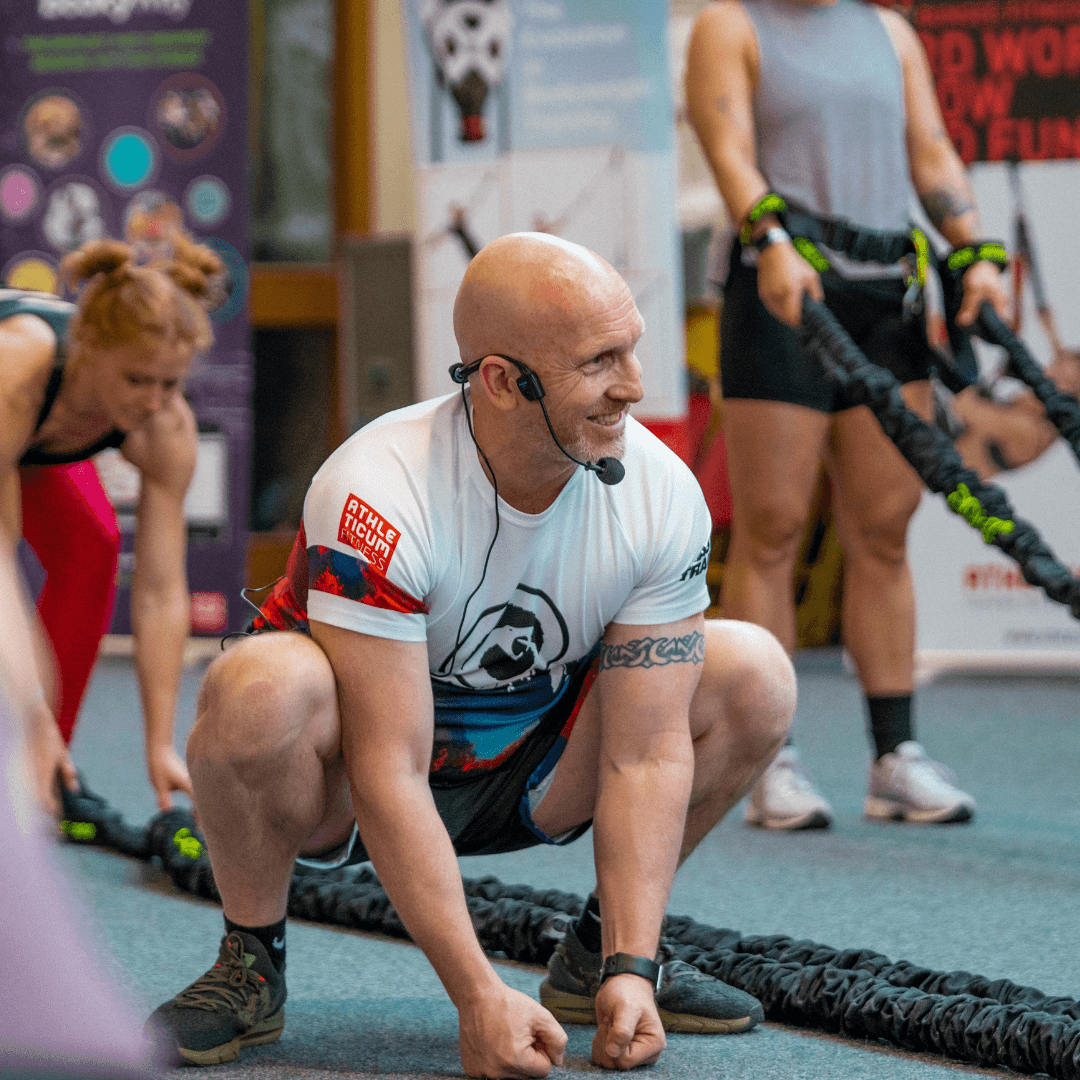The Art of Delivery and Communication When Coaching a Group Exercise Class

As a group fitness instructor, you are responsible for leading a class of students through a workout while providing cueing, correction, and motivation. This can be a daunting task, especially if you are new to the industry. There are many factors to consider when coaching a group exercise class, but delivery and communication are two of the most important. Let's take a closer look at why delivery and communication are so important in group exercise classes and how you can improve your own skills in these areas.
The Importance of Delivery and Communication in Group Exercise Classes
As a group fitness instructor, it is your responsibility to lead your students through a workout while providing cueing, correction, and motivation. This can be a daunting task, especially if you are new to the industry. There are many factors to consider when coaching a group exercise class, but delivery and communication are two of the most important. Here's why:
Delivery refers to the way in which you present the material in your class. This includes your vocal tone, volume, pace, inflection, and word choice. Your delivery should be clear and concise so that your students can understand your cues and follow your instruction. Additionally, your delivery should be energetic and enthusiastic so that you can maintain the attention of your students throughout the class.
Communication refers to the way in which you interact with your students. This includes both verbal and nonverbal communication. Verbal communication includes things like giving instructions or offering encouragement. Nonverbal communication includes things like facial expressions or body language. It is important to be aware of both forms of communication so that you can effectively communicate with your students.
Improving Your Delivery and Communication Skills
There are many ways to improve your delivery and communication skills as a group fitness instructor. Here are a few suggestions:
- Take a class on public speaking or presentation so that you can learn how to effectively deliver information to an audience.
- Watch videos of other instructors teaching classes and pay attention to their delivery and communication styles. Try to emulate the style of those instructors who are most effective at delivering information and maintaining the attention of their students.
- Practice in front of a mirror or with friends so that you can get comfortable speaking in front of others. This will help you reduce any nervousness or anxiety that you may feel when teaching a class.
- Be aware of both verbal and nonverbal cues that you may be sending to your students. Make sure that your words match up with your body language so that you do not send mixed messages.
Here's a deeper dive into 3 must dos'
1. Use clear and concise language
When cueing exercises, use clear and concise language that everyone can understand. Avoid jargon or technical terms that not everyone may be familiar with. Instead, opt for simple instructions that will leave no room for interpretation or confusion. For example, instead of saying "performing a lat pulldown with proper form," try "gripping the lat pulldown bar with your palms facing away from you and pulling the bar down to your collarbone."
2.) Give visual aides
In addition to verbally cueing exercises, provide visual aides whenever possible. This could mean demonstrating the exercise yourself, using props such as mats or weights, or even pointing out specific body parts or landmarks in the room that will help students orient themselves (e.g., "be sure your feet are hip-width apart"). If you have access to a projector or TV screen in the room, even better! You can use these tools to display diagrams or video demonstrations of the exercises you'll be doing during class.
3.) Repeat & rephrase
If you notice that some students are still struggling to grasp the concept after your initial instructions, don't be afraid to repeat yourself or rephrase things in different words until everyone seems confident and comfortable moving on. It's always better to err on the side of over-explaining than under-explaining when leading a group exercise class.
Improving your delivery and communication skills as a group fitness instructor is essential to being successful in this role. There are many ways to improve these skills, but it is important to start with the basics: taking classes on public speaking/presentation, watching videos of other instructors teaching classes, practicing in front of others, and being aware of both verbal and nonverbal cues that you send to your students. If you focus on improving these skills, you will be well on your way to becoming an outstanding group fitness instructor!







Leave a comment